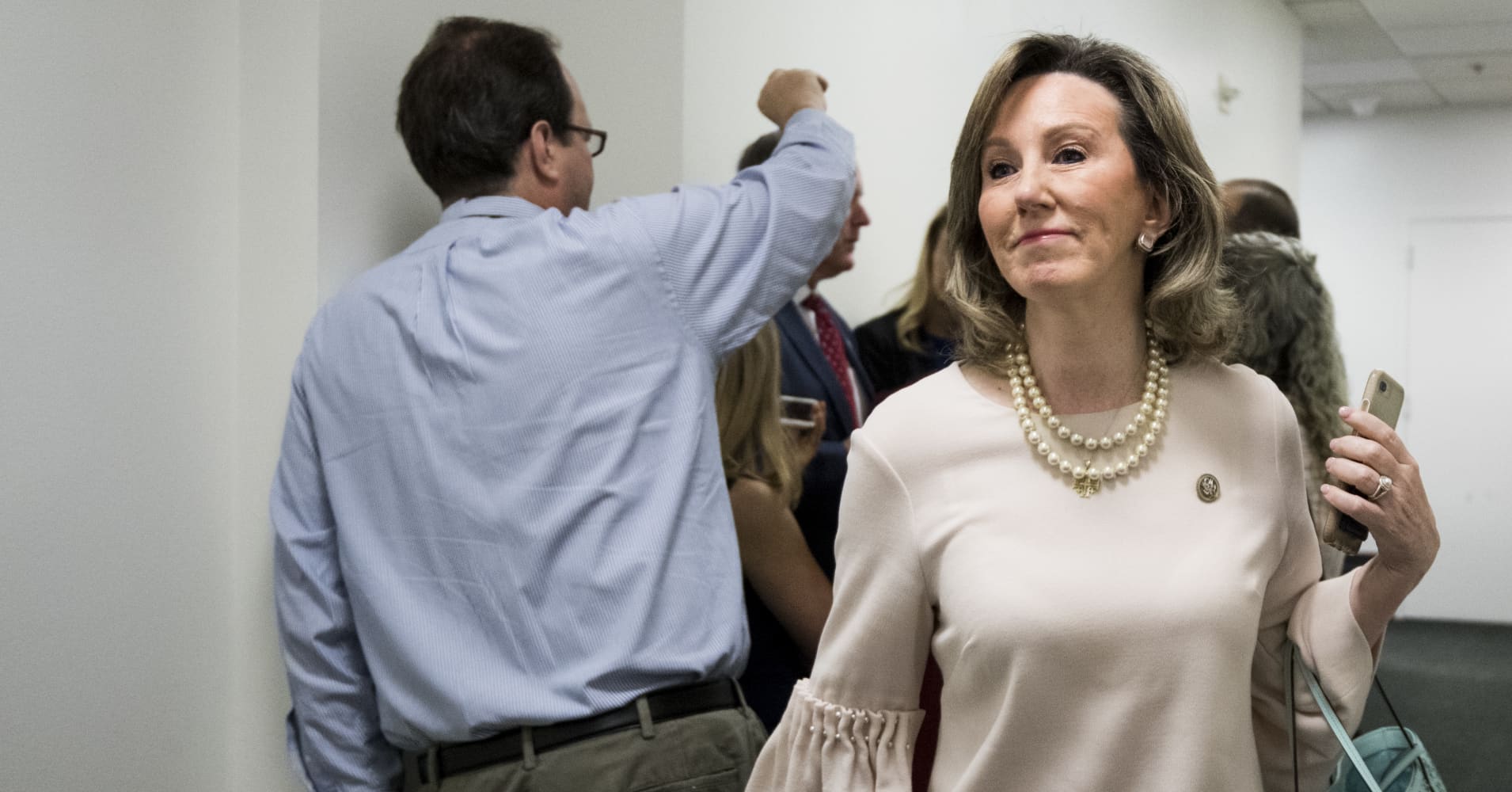
At least three House Republicans in Virginia face fights for their political lives in November. President Donald Trump isn't helping them.
The president on Thursday scrapped a 2.1 percent pay raise for civilian federal government employees previously set to take effect in January. In a letter to House Speaker Paul Ryan, Trump cited a need to "put our Nation on a fiscally sustainable course" and contended that the action "will not materially affect our ability to attract and retain a well qualified Federal workforce."
The move could further imperil some House Republicans already locked in competitive races to keep their seats in November. GOP Reps. Barbara Comstock, Scott Taylor and Dave Brat hope to defend their competitive Virginia districts as Republicans try to stop Democrats from taking a House majority.
As the state — and particularly Comstock's 10th District west of Washington — sits in close proximity to Washington D.C., it has a significant federal civilian employee workforce. By denying raises to a chunk of their voters, Trump just added another obstacle between those lawmakers and re-election.
Democrats Jennifer Wexton, Elaine Luria and Abigail Spanberger — challengers to Comstock, Taylor and Brat, respectively — all swiftly slammed Trump's decision on Thursday. That suggests they will press their Republican opponents on the issue between now and November.
Comstock, considered by many the most imperiled GOP House incumbent, did not need the additional challenge in an area with tens of thousands of federal employees. She trailed Wexton by about 10 percentage points in a district where 47 percent of voters strongly disapprove of Trump, according to a June Monmouth University poll. A Politico report Friday morning indicated that national Republicans would consider cutting Comstock off from funding as they chose the districts in which their funds would be most useful.
Congress can still authorize a raise for the federal civilian employees, which was set to cost about $25 billion. In a statement Thursday saying that "we cannot balance the budget on the backs of our federal employees," Comstock said she would "work with [her] House and Senate colleagues to keep the pay increase" during the congressional appropriations process next month.
"I don't know how much this hurts, but it doesn't help, and she probably needs help," Kyle Kondik, the manager editor of nonpartisan election analysis site Sabato's Crystal Ball, said in an email.
Comstock will see "no electoral downside for coming out against" the pay freeze, said Michael Cohen, an adjunct professor of public administration at the University of Southern California who is based in Comstock's district. But "the fact of the matter is it's not going to help her very much," he added.
Taylor's 2nd District in the southeastern part of the state, which has a heavy Naval presence, has about 30,000 federal employees, according to a statement from the Republican representative Thursday. It is unclear exactly how many are civilians and how many are military, who will still receive a pay raise. Still, Taylor opposed the president's move.
"Federal employees in the Second Congressional District must be properly paid for the contributions they make to our nation and its defense. I oppose this decision and will lead an effort to reverse its effect," Taylor said in a statement Thursday.
Kondik said that "one could imagine this being an issue for Scott Taylor" as well as Comstock, although he was unsure of how big of an effect it would have. Sabato's Crystal Ball rates Taylor's race as a toss-up, while nonpartisan sites Cook Political Report and Inside Elections both consider it one that leans Republican.
Based on the concentration of federal workers in his 7th District, Brat appears to face less risk from the pay freeze than either Comstock or Taylor do. Brat, who shockingly upset Republican House Majority Leader Eric Cantor in a 2014 primary on his way to winning the seat, has built a brand of Tea Party-infused fiscal conservatism as a member of Congress.
Still, he does not support the president's move to scrap the pay increases.
"We should seek ways to aggressively cut the budget, but removing promised raises from federal employees last minute is not the way to do it," Brat said in a statement to CNBC on Friday.
Sabato's Crystal Ball and Cook Political Report rate Brat's race as a toss-up. Inside Elections considers it one that tilts Republican.
Trump's move complicates an already tricky electoral landscape for Virginia Republicans. Democrats lead by about 8 percentage points in a rolling average of national congressional generic ballots asking voters which party they would prefer, according to FiveThirtyEight.
Trump's relatively poor approval rating, lackluster support for key GOP congressional initiatives and historical challenges for the president's party in midterms have all contributed to a challenging environment for Republicans this year.
Democratic Gov. Ralph Northam won election in the state by about 8 percentage points last year. He carried the counties that make up Comstock's district overwhelmingly.
In addition, the Senate candidate at the top of the GOP's ticket in the state could add yet another difficulty for Republicans. Polls have consistently showed Democratic Sen. Tim Kaine trouncing Republican Corey Stewart. Stewart has avidly defended symbols of the Confederacy and pledged to crack down on illegal immigration.
via IFTTT
No comments:
Post a Comment